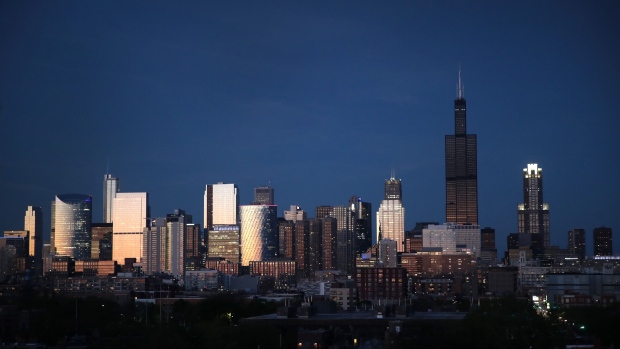Sep 20, 2023
Chicago Sues Monsanto, Univar for Contaminating City’s Water
, Bloomberg News

(Bloomberg) -- Chicago is suing Bayer AG’s Monsanto and Univar Solutions Inc. for polluting the city’s water, air and soil with chemicals the companies knew were harmful to humans.
The complaint, filed in Cook County Circuit Court, seeks financial compensation for expenses related to cleaning up contamination with polychlorinated biphenyls, or PCBs. The city argues the companies “misled the public” and released these chemicals despite knowing they were dangerous to humans and the environment.
The lawsuit follows a similar cases by other cities and states including Illinois, New Jersey, Oregon and Delaware. The pollution has also caused valuable private property in the city to be abandoned, hurting the community, according to Chicago’s complaint filed on Tuesday.
“Monsanto knew for decades that its commercial PCB formulations were highly toxic,” Johnson, who took over in May, said in a statement on Wednesday. He added that the contamination perpetuated “the environmental abuse and stark inequities so many of Chicago’s neighborhoods have long suffered from.”
This isn’t the first time Mayor Brandon Johnson sues big businesses. Last month the city took action against Kia Corp. and Hyundai Motor Co. for failing to include engine immobilizers in various models, causing a spike in car thefts.
Bayer AG, which acquired Monsanto in 2018, said the company has never manufactured or disposed of PCBs in or near Chicago and that the products alleged to be the source of pollution were not made by third parties and not Monsanto.
Univar didn’t respond to a request for comment.
PCBs are chemicals that were widely used in a variety of products including paint and varnishes, electrical equipment, insecticides, and coolants until they were banned in the late 1970s. Releases from products produced before then continue to drain into Lake Michigan through municipal storm water, the city said.
Illinois has placed limits on daily PCBs discharges from Chicago and new rules require the city to reduce releases by an estimated 99.6%, according to the statement. As a result, the city is seeking to recover “significant costs” to comply with the regulations.
(Updates with Bayer response in sixth paragraph.)
©2023 Bloomberg L.P.






